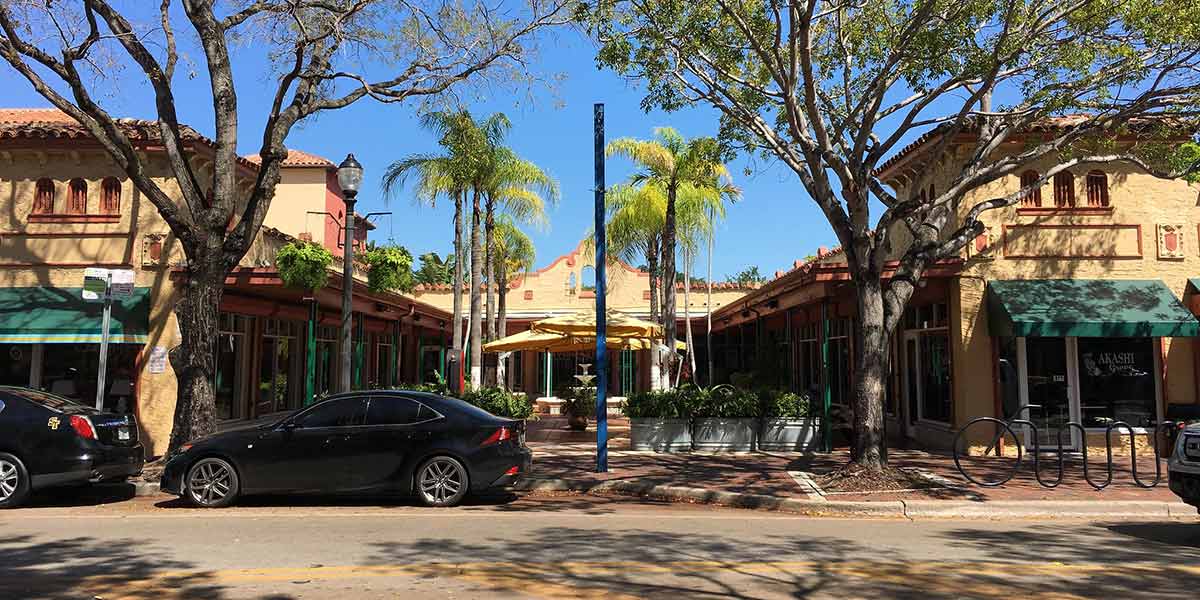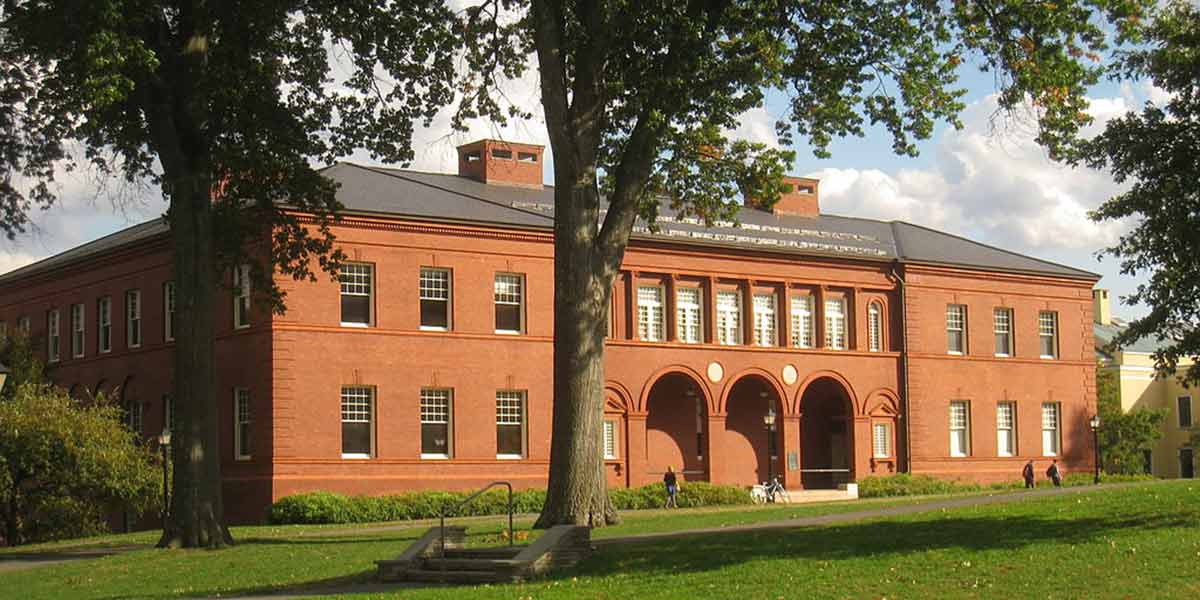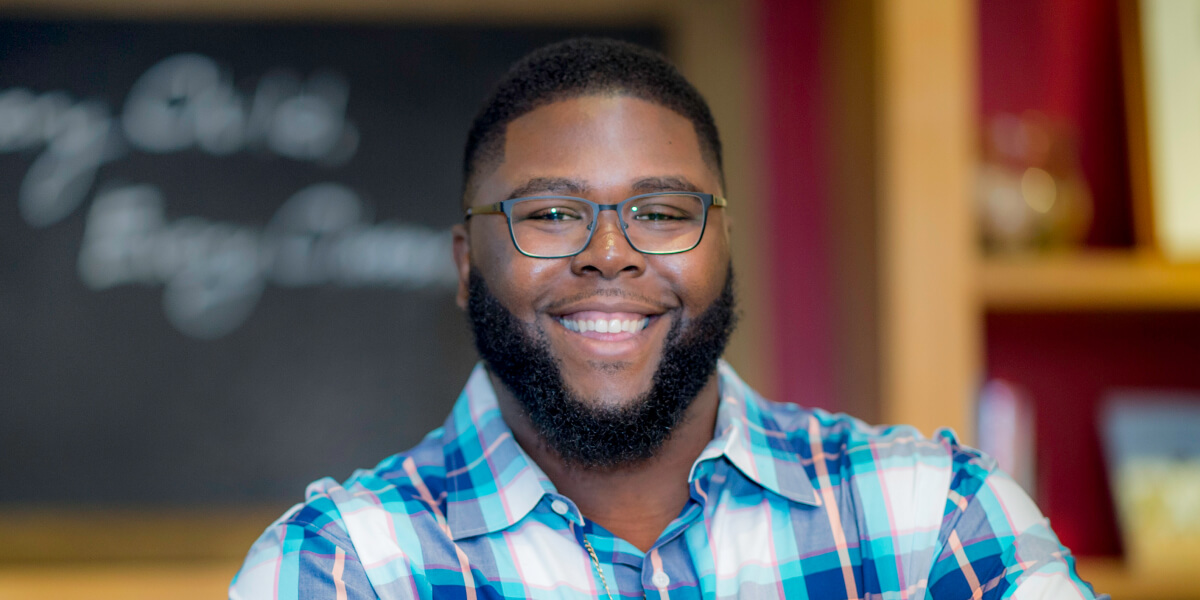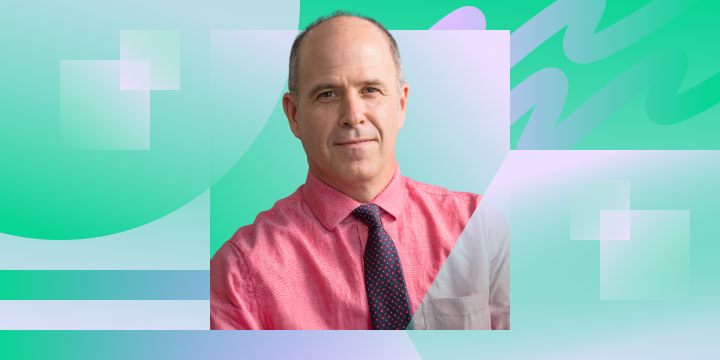Top Hat is the active learning platform that makes it easy for professors to engage students and build comprehension before, during and after class. This interview is part of our recurring series “Academic Admissions,” where we ask interesting people to tell us about the transformative role education has played in their lives.
Hailing from a disenfranchised part of Miami, Anthony Abraham Jack assumed his educational path would start and end with public school. That is, until a chance experience propelled him to a private college-prep academy where he learned that supportive teachers could help students take control of their academic experience. From there, he was afforded a scholarship to Amherst College, where an interest in connecting the narratives he observed around him to wider societal patterns inspired him to pursue sociology for grad school at Harvard. His studies there, reinforced by his previous academic experiences, focused on the unrealized diversity existing in lower-income undergrad populations. Today, his research on the subject continues as a junior fellow at the Harvard Society of Fellows and assistant professor of Education at the Harvard Graduate School of Education.
Subscribe to Top Hat’s weekly blog recap
Get the best posts of the week delivered to your inbox:
I’m from Coconut Grove, in Miami, Florida. In 2013, my local newspaper called it, “the Miami neighborhood time forgot,” meaning it wasn’t keeping up with the rest of Miami. In my predominantly black and lower-income neighborhood, most people worked, but there were definitely many people who were jobless.

Coconut Grove, Miami. Photograph: Phillip Pessar, Flickr CC-BY-2.0
I was a Head Start kid and the program gave me access to early childcare and schooling. That extra time was hugely important for me, to learn to be around teachers and to get that extra training before elementary school. I lived with my mom—she was a security guard at Ponce de Leon Middle School for over 30 years—and my brother—who is now a janitor at my old elementary school. There were times where we managed to make ends meet, and other times where we struggled. That was the norm.
I thought I would always go to public schools, and graduate from one. But my high school football coach would unknowingly change that. He was someone who preferred athlete-students to student-athletes, and I was the latter. I was a nerd. I loved to read, I loved to write, I loved to watch cartoons and play spades. Football was a hobby. It was something to keep me active, and to keep trouble away from me. I wasn’t a troublemaker, didn’t seek out trouble, but sometimes trouble finds you regardless. Football gave me somewhere to be after school. It gave me a community and an outlet.
Culture shock
https://www.instagram.com/p/B1hramYFUiq/
In my junior year, I had to have surgery because I dislocated my shoulder in a game. When that happened, the coach kicked me off the team. My mom thought I should have a better experience for my final year of high school, and I earned a scholarship to Gulliver Prep, a prestigious college-prep school. That year represented the biggest culture shock I’ve ever experienced in my life.
I went from an okay public school to an elite private high school, where most of the students came from money. But even the lower-income scholarship students were very comfortable compared to where I was coming from. I was exposed to all kinds of new things: people talking about where they vacationed; seeing peoples’ huge, gorgeous, six-bedroom-plus-pool homes; Centurion credit cards, steaks cooked medium—I don’t think I’d ever had a steak in my life.
It was a socialization in two ways: yes, I was exposed to people who were in the top one percent, but it wasn’t just that. I was exposed to how those students were educated. I learned I could be seen as an equal by teachers. At my public school, teachers were supportive of you as best they could be. At Gulliver, teachers were supportive, but they also invited you to take much more control over your school experience. So, long before I got to college, I experienced office hours, even though Gulliver didn’t call them that. The teachers were required to have a dedicated amount of time to be in their office and available to talk to students about whatever they needed.
Pursuing sociology
From Gulliver, I went to Amherst College on scholarship, and spent my undergrad pursuing Women’s and Gender Studies, Religion, and Pre-Med. I’m a big fan of a liberal arts education, and what I loved most was studying stories and narratives and connecting them to larger societal patterns. Amherst prepared me to think and write in such a way that I could communicate with any audience about my observations, and that has paid off tremendously.

Amherst College. Photograph: Public Domain
You see, there weren’t a lot of people in academia who cared to think about people like me. What I mean by that is, scholars have written a lot about people like me, but have never written to or for us. That was on my mind when I decided, over lunch a professor, to go to grad school for sociology. She thought it would be a good fit, and I was attracted to the life of a professor—their role, their support of students, the time off in the summer and the robes!
I arrived at Harvard with the intention of studying black men and employment. But I noticed in my readings for a survey course that sociologists kept talking about lower-income undergraduate students like myself in a singular way, mainly that we all experience culture shock when we arrive on college campuses. I knew that was right for about half my classmates who came from similar backgrounds as me, but not all of them. I knew something was missing in the scholarship.
I thought back on my arrival at Amherst, and how I assumed I was the only poor kid there. Because at first everybody kept talking about the same things that the rich students at Gulliver talked about: going to Europe, getting a car for their senior year, flying on a private jet, shopping sprees, family vacations to exotic places, booking a hotel room that cost $7,000 a night—all kinds of wild things. But then I also started hearing from friends about programs like Preps for Prep, A Better Chance and Wight Foundation, which place lower-income students into preparatory high schools. What I didn’t know then is that my detour through Gulliver was a well established on-ramp for many students. Just how many actually shocked me: on average, 50 percent of the lower income black students at elite schools are also the alumni of preparatory high schools. When we think about lower-income undergraduates, students who are first in their families to go to college, we think about underserved schools, overextended teachers, really bad contexts. We don’t think about schools that cost $55,000 a year. We don’t think about lower-income students who are flying off to Germany for an exchange program.
“Privileged Poor” and “Doubly Disadvantaged”
My initial conversations with new friends at Amherst covered the lighter stuff: What school did you go to? How many countries have you visited? But then, when we started sharing stories like, “Oh, yeah, I’ve been evicted once before,” or “Yeah, my family was on food stamps for a while”…all of a sudden, I realized that these people did have similar experiences, both at school and at home. That’s how I came up with the term “Privileged Poor.” We’re economically disadvantaged, but we have many of the social and academic experiences similar to the top one percent because we are educated right next to them. It’s an oxymoron that captures the reality of our lives. We know what it means to be poor. We know what it means to struggle with finances, and all the things attached to that. But we also know what it means to set foot on a campus with grounds, scenery, staff and endowments that rival some colleges.
Then there are lower-income students who went to public schools that are disordered, under-resourced, over-crowded—they didn’t have the opportunity to go to schools that could prepare them for college the way some of their peers did. I called these students the “Doubly Disadvantaged.”
I realized that in my story was the answer to a question that sociology was not asking. That our understanding of how poverty and inequality shape the experiences of lower-income students was incomplete. And I knew that to effect change on campus, I would have to clear up some of these misconceptions and assumptions.
I reached out to scholars of color in the field, like Professors Al Young at the University of Michigan, Sandra Susan Smith and Prudence Carter at the University of California Berkeley, and Brandon Terry at Harvard University. They could provide advice about theory and methods, and about social policy, but they also could provide advice about how to make it in academia when you are the only person of color in the department. They could provide the kind of advice and support that is at once professional, but emotional and even spiritual. I needed mentorship through particular stages of grad school and evolving my studies into a career, and these people all helped me tremendously. I tell my students today: there’s no harm in asking. I literally used that as a title of a paper. It’s going to be a definite “no” if you never ask, but you might actually get a “yes.” You might actually get a, “Sure, I can help.” I saw that philosophy work for people who came from more money than I had, starting all the way back at Gulliver. They were just much more comfortable asking for what they wanted.
Ultimately, what I wanted was to connect with students, respectfully infuse my research with their stories, and use it to reduce the hurdles they face in college, or even remove some of them, so that future generations of students won’t have to suffer in the same way. That’s very important to me because I’m a sociologist, I’m a scientist, but I’m also a first-generation college student. So when I use my work to change policies on campus, it shows the power of research and the power of stories. When students tell me, openly and honestly, that they’re going hungry when their campus shuts down during spring break, that they were doing anything they could to hoard food, and to conserve money, including getting by on one meal a day, that’s motivation for me to help change school policies. To get professors, college presidents, and deans to think differently about food and security on their campus. The fact that I was able to get ten universities to fundamentally change the way in which they support students during these troubled times, to me, that’s a win.
Breaking down barriers
When I get professors to think about defining office hours on their syllabus and in their classes, it’s to break down the language barriers. Because not everyone knows what office hours are. If you haven’t been to a school where office hours are part of the curriculum, if you’ve never heard the term, you don’t know how to navigate this access, or how to use it to your advantage. Colleges expect students to not only be proactive, but comfortable reaching out for any form of support that they need. And yet, I’ve had people tell me that their students thought that office hours were times that they couldn’t bother the professor.
Every generation of students has different things that they fight for. We should be more concerned about the issues that they are voicing.
As a sociologist, I’m not here just to document inequality and how poverty works. I’m here to disrupt as much of it as I can. One of the reasons why I chose to work at the Harvard Graduate School of Education is because we have a publication where we talk about usable knowledge. So, knowledge not to just go into journals and books and then shelved. But knowledge that a teacher, a principal, a headmaster, a professor, a parent or a student can use in their daily life, to make their life better. That’s why I do what I do.
I actually see a lot of myself in the students today. I also think students see a lot of themselves in me, and that’s one of the reasons why they talk to me. Every generation of students has different things that they fight for. So, I think we should be more concerned about the issues that the students are voicing, that we should actually listen to students, and understand what they’re saying. I fundamentally believe that they’re giving voice to how a lot of the different structural inequalities have a stranglehold on their lives.
What I want people to realize is, students are not just complaining about going hungry; they are going hungry. Students aren’t complaining about the work they need to do; students are voicing real concerns that they don’t understand what is expected of them, because we are using a vocabulary that middle-class and affluent students know, but the rest of us don’t. And we have to solve these issues before we can ever truly welcome more diversity on campus.
This interview has been edited and condensed for clarity.


